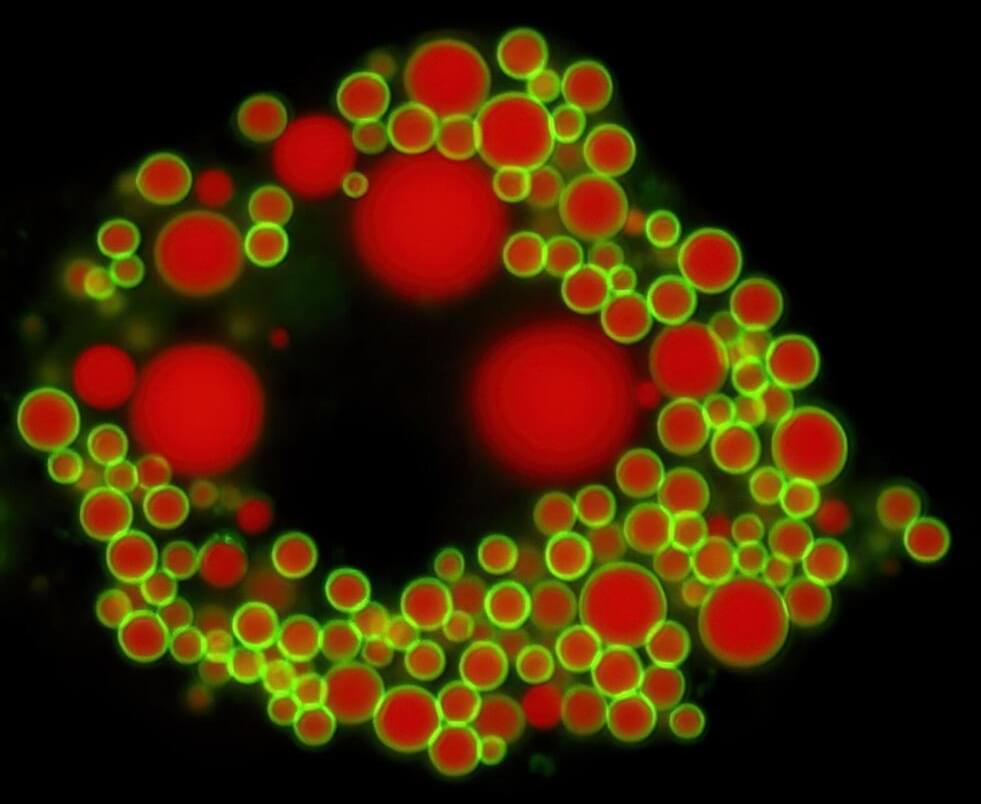Fat molecules serve as energy storage for fat cells. They consist of three fatty acids attached to a backbone of glycerol. They are therefore also called triglycerides. It has long been suspected that molecules do not remain unchanged during their storage period. Instead, they are regularly broken down and reassembled—a process called “triglyceride cycling.”
But is this assumption even true, and if so: What would that be good for? “Until now, there has been no real answer to these questions,” explains Prof. Dr. Christoph Thiele of the LIMES Institute at the University of Bonn. “It’s true that there has been indirect evidence of this permanent reconstruction for the past 50 years. However, direct evidence of this has so far been lacking.”
The problem: To prove that triglycerides are broken down, and fatty acids modified and reincorporated into new molecules, one would need to track their transformation as they travel through the body. Yet there are thousands of different forms of triglycerides in each cell. Keeping track of individual fatty acids is therefore extremely difficult.
